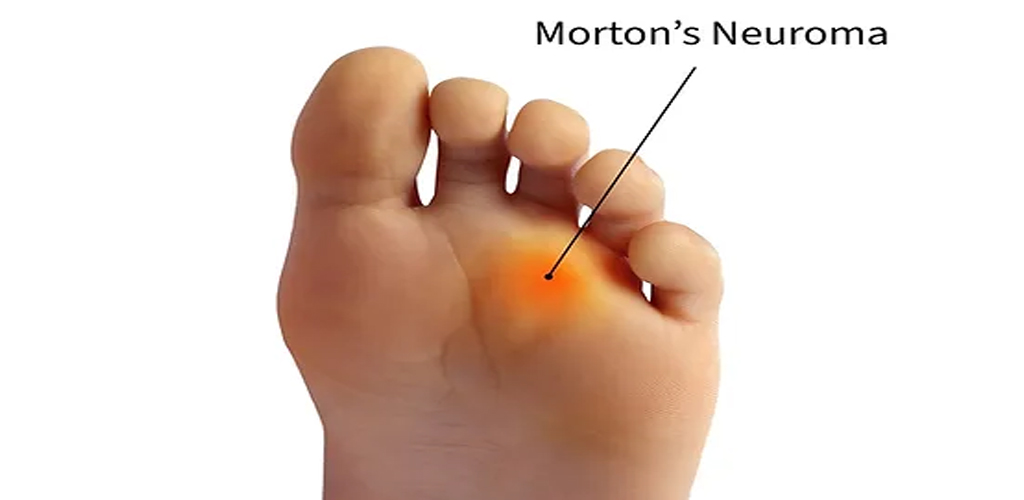Sharp, burning pain in the ball of the foot.
.png)

Morton's Neuroma is a painful condition that affects the ball of the foot, most commonly occurring between the third and fourth toes. This condition involves the thickening of the tissue around one of the nerves leading to the toes, causing pain and discomfort. Understanding the symptoms and seeking appropriate care is crucial for managing Morton's Neuroma effectively.
Morton's Neuroma can present with various symptoms, including:
Sharp, burning pain in the ball of the foot.
Numbness or tingling in the toes.
Feeling of a small pebble or marble under the ball of the foot.
Worsening pain with activities that put pressure on the foot, such as walking or wearing tight shoes.
Morton's Neuroma is often associated with irritation or compression of the nerve between the metatarsal bones. Contributing factors may include:
Wearing high-heeled shoes or shoes with a tight toe box.
Foot deformities, such as bunions or hammertoes.
Repetitive stress on the forefoot, as seen in certain sports or activities.
Diagnosing and treating Morton's Neuroma may involve:
A healthcare provider may perform a physical examination and apply pressure to the affected area to assess pain and discomfort.
X-rays or MRI scans may be recommended to rule out other foot conditions and visualize the neuroma.
Switching to shoes with a wider toe box and lower heels can alleviate pressure on the affected nerve.
Custom orthotic inserts may provide support and reduce symptoms.
Anti-inflammatory injections may be administered to reduce pain and inflammation around the neuroma.
In severe cases, surgical removal of the neuroma may be considered.
If you suspect you have Morton's Neuroma or are experiencing foot pain and discomfort, consult with a podiatrist or healthcare professional. Early intervention and appropriate care can help manage symptoms and improve foot function.